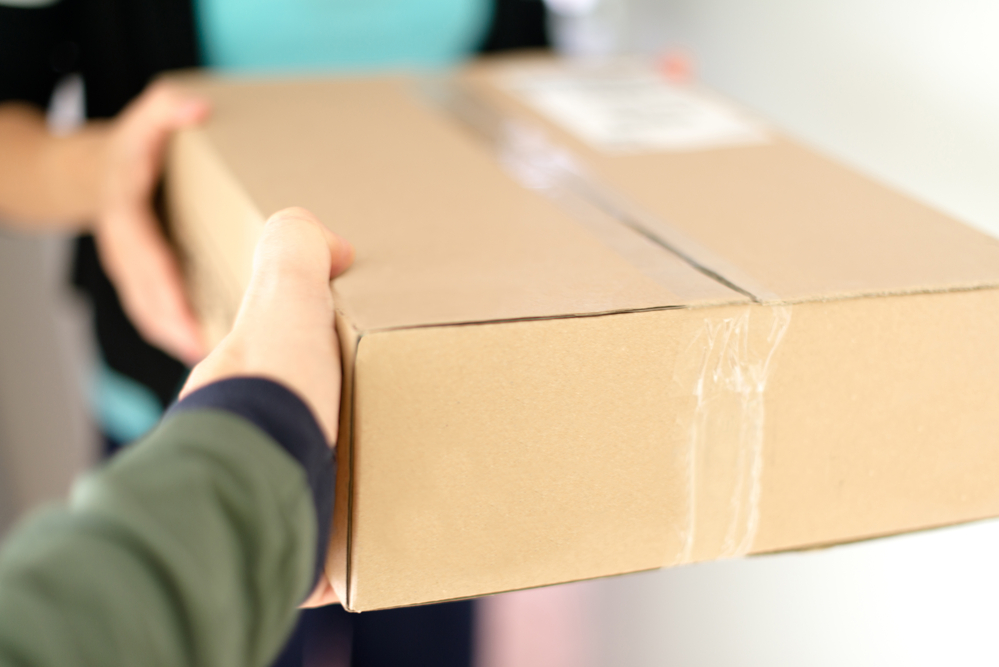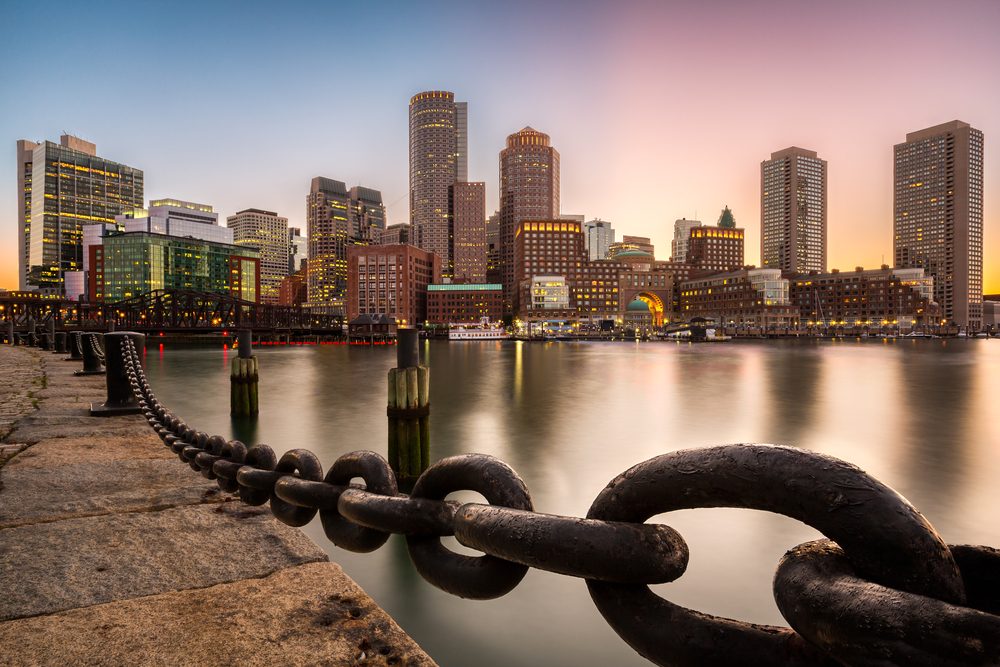
Accessibility to medical marijuana is always a concern for regulators. In a city where public transit is available (and multiple dispensaries), it is convenient for patients to pick-up cannabis products. But what about patients who live in rural areas where public transportation is limited? Not everyone has a car, and people with serious health conditions may not be able to drive to get their cannabis, depending on where they live in Massachusetts.
When patients cannot access their medical cannabis by other means, they have to rely on a designated caregiver. Registering a caregiver is a whole different process. Not difficult, but it takes a few steps. And for that reason, adults who do not require assistance daily may not designate a caregiver for help with delivery. Or they may not have a close family member who can assume that support role locally.
Massachusetts marijuana regulators have legalized medical cannabis and adult-use (recreational). However, like many states, they have considered the risk during the current Covid-19 health emergency. If state regulators can reduce foot traffic to dispensaries and provide the essential delivery service, that would be a win. And that is where licensed dispensaries and the state agree.
However, where the state and current adult-use or medical marijuana dispensaries do not agree is third-party delivery. The state wants it made available. Dispensaries do not because they have concerns and want to protect the lucrative service. And make it exclusively provided by dispensaries. And both medical and adult-use dispensaries are ready to fight the state in court.
When you are hungry, you can count on delivery apps like Uber Eats and DoorDash. Simply jump on your smartphone, find what you want, pay, and wait for the delivery guy. That service is really valuable to consumers, particularly patients with health conditions.
On Monday, November 30, 2020, marijuana regulators in Massachusetts approved the final regulations needed to facilitate third-party delivery services. This means that a company that applies for a business license (and meets the regulatory requirements) can become a go-to delivery service for cannabis.
Providing secure pick-up and home delivery services for residents who buy medical or adult-use marijuana is essential, even beyond the pandemic. And while Amazon may leave packages on the doorstep, cannabis delivery providers would not.
The process would also involve the age of majority verification (proof that the consumer is twenty-one (21) years of age or older). And for medical card holders, that would also include confirmation of their MMJ registration with the state for legal purchase.
Patients with a medical card in Massachusetts do not pay taxes on marijuana purchases. It saves them 20% on each transaction, or up to 26% when cannabis is purchased in MA communities that have added a local excise tax. After a patient has purchased 3-ounces or more, they do not pay tax for the year on all marijuana products (including edibles) they buy.
Dispensaries in Massachusetts are required to reserve 35% of their stock exclusively for purchase by medical cardholders.
Because cannabis is still a controlled and highly regulated substance, ordering weed for delivery is not like ordering a pizza. Remember, there are still limitations to how much marijuana you can purchase, even in a state that has legalized adult-use.
For example, in Massachusetts, residents are legally allowed to possess:
To balance supply and demand, dispensaries in Massachusetts are also allowed to set their maximum purchase limit. For instance, a dispensary may limit the customer to purchasing 1/8th of an ounce of a popular strain.
It takes a lot of investment money and backing to get into the cannabis industry in a legalized state. Social equity regulations aim to make cannabis an equal opportunity for all business owners. Many people of color (POC) feel that the equity requirements and other barriers prevent them from participating in the high-growth and lucrative business opportunity.
But setting up a delivery service would take less investment, wouldn’t it? An entrepreneur with a low capital investment could quickly become licensed and begin operating a lucrative new service-based business. Providing that “DoorDash” experience and convenience, direct from dispensaries to consumers.
In the Spring of 2020, the Cannabis Control Commission (CCC) of Massachusetts began accepting applications for a ‘courier’ license. What that might look like is an operator who provides a website or a smartphone app that features all geographically local dispensaries for the consumer. A menu of products for adult-use, where the customer would add items to the cart and pay for the products.
Consumers would also pay the required delivery fee at that time. The delivery service would then simply visit the dispensary, pick up the order, and deliver it to the customer’s home address. And ask for identification at the door (one significant difference between ordering a pizza versus ordering pot for delivery.
It is important to note that legalized delivery of cannabis products was already legalized in Massachusetts. It was decided in the 2016 electoral ballot.
Weed dealers deliver. It’s been part of the Black-Market service provision since marijuana prohibition gained steam in the 1950s. Your friendly neighborhood dealer is more than happy to visit your home in most cases because it is a lower risk and private transaction. And the buyer? They’d prefer to get their products in a safe place, rather than “riding dirty” after meeting up with a dealer in a public area.
The Black-Market pot dealers have had that advantage until delivery was legalized in many states. As legal dispensaries enter the market, they slowly squeeze out the illegal or unlicensed products and sales. Quality from dispensaries can be much better. Consumers know that dispensaries have quality control measures in place (no ‘mystery shake’). It’s safer all around, and consumers know that.
But where the Black-Market cannabis providers excel is in providing two services. First up, they provide free home delivery. Second, some Black-Market providers may supply illegal strains with a higher THC level than legally permitted in the state. Or concentrates that have very high levels of THC. While regulated dispensaries are limited to the potency, they can sell.
Squeezing the Black-Market providers out is a priority. Several states that legalized medical marijuana or medical and adult-use have already reported lower crime rates. And Black-Market sales do not generate tax revenue for the state. And that is revenue that the state would like to protect and grow.

To dispensaries who are fighting the third-party delivery services, it comes down to protecting their businesses. And reducing price comparisons with other local dispensaries. To demonstrate this point, let’s go back to the example of DoorDash for food delivery.
You open the DoorDash app, and you want Italian food. You get it from the same place when you order pick-up. But once you get into the app, you can see that there are seven other Italian food restaurants in the area. You see their menus browse their prices, and you may order from a different place. Comparison shopping is normal. It can help you try new things and help you score the best deal possible (including special offers, coupons, or BOGO incentives).
That works for consumers. They get the best deals that way. Who it does not work for, however, are the local dispensaries. First, they don’t want to enter into a price war with other dispensaries. Delivery apps would make it easy for consumers to comparison shop. And that doesn’t work for adult-use or medical dispensaries. The highest-priced dispensaries (or those that have the smallest selection of cannabis strains or products) will lose.
The second factor that has dispensaries ready to stomp on third-party delivery is losing that revenue stream. Delivery services always tack on an additional fee. A small one, but when you are fulfilling hundreds of orders a day, adds up to a nice profit margin. And they’d like to protect that.
Another concern about third-party delivery for dispensaries in Massachusetts is security. Ultimately, the dispensaries are legally responsible for the safe sale of cannabis products. Direct to an authorized consumer. They are business insured for liability. Terms require them of business licensure in Massachusetts to provide secure transactions. And failure to do so can mean the loss of their business license.
Who will be liable if the delivery service fails to verify the minimum age of 21 years? Will the dispensary be responsible if their cannabis products end up in the hands of minors? The delivery company provides a service, but the dispensary has sold a product to a consumer. What happens if the product doesn’t arrive? Again, who is legally liable?
When a dispensary makes a sale transaction, they do not record how much cannabis the individual has purchased in the month. Some states with limitations do require that dispensaries track purchases. This is to avoid exceeding the maximum legal possession limit.
But in Massachusetts, that responsibility falls on the medical cardholder or the adult-use consumer. Will those maximum limits be more challenging to regulate if the consumer is encouraged to purchase from multiple dispensaries? Depending on which dispensary has “the best deal” in the local area?

For the first two years after the legislation is passed, the Massachusetts Cannabis Control Commission (CCC) will only issue licenses to the social equity program applications. There are also a few small businesses in specific communities that the CCC has already approved for business licenses.
The approved small business members of the Massachusetts Cannabis Control Commission have specific criteria to meet to qualify for social equity licensure.
Business owners must:
The social equity caveat gives small business owners, without investors or large sums of capital, a way into the legal cannabis market. And the three-year restriction also provides a head-start to help the new third-party delivery services. They can get established before they face competition from medical or adult-use local dispensaries who want to offer delivery services.
Now you know why the dispensaries are ‘up in arms’ and ready to go to court over the new third-party delivery regulations. That’s right, currently licensed dispensaries will not be able to add adult-use delivery to their revenues for three years.
By the time licensed dispensaries are legally permitted to provide delivery services, consumers will have created relationships with the third-party independents. Breaking into that market could be hard for dispensaries after twenty-four months. Also, there is that price competition factor too. With a number of third-party delivery services available, dispensaries will have to discount (or offer free delivery) to sustain their sales.
Some dispensaries in Massachusetts have started to negotiate business relationships with third-party delivery business owners in the social equity program. That’s one mutually beneficial way to beat the system. The dispensary may take partial ownership (say 5%) of the delivery service with a contracted exclusivity guarantee. They will only use one delivery service. It’s a win/win.
However, some small business owners have objected to that kind of predatory business requirement. They pushed the Cannabis Control Commission in Massachusetts to be able to legally purchase cannabis products. That includes warehousing and selling them directly to consumers. And that has licensed dispensaries seeing red. The MA Cannabis Control Commission approved the change by a 3-1 vote on November 30th.

Delivery service providers will be able to buy, store, and then operate their e-commerce cannabis stores, complete with secure door-to-door delivery. While these delivery businesses will still need to purchase cannabis products from licensed dispensaries, they may wish to negotiate volume discounts. And pass those savings on to consumers.
So, dispensaries are not going to lose essentially in the equation. The small business owners in the social equity program will not be approved for cultivation or processing licenses. That makes them wholesale customers for dispensaries. But it also means they will be competing directly for sales with dispensaries.
And medical and adult-use dispensaries are not okay with that. In fact, the Commonwealth Dispensary Association released a statement on November 30th, 2020, that said they would legally challenge the new regulatory changes.
Featured Image: epidemiks |Deposit Photos
No Information on MarijuanaDoctors.Com should be used to diagnose, treat, prevent or cure any disease or condition. You can view our Full Disclaimer here.